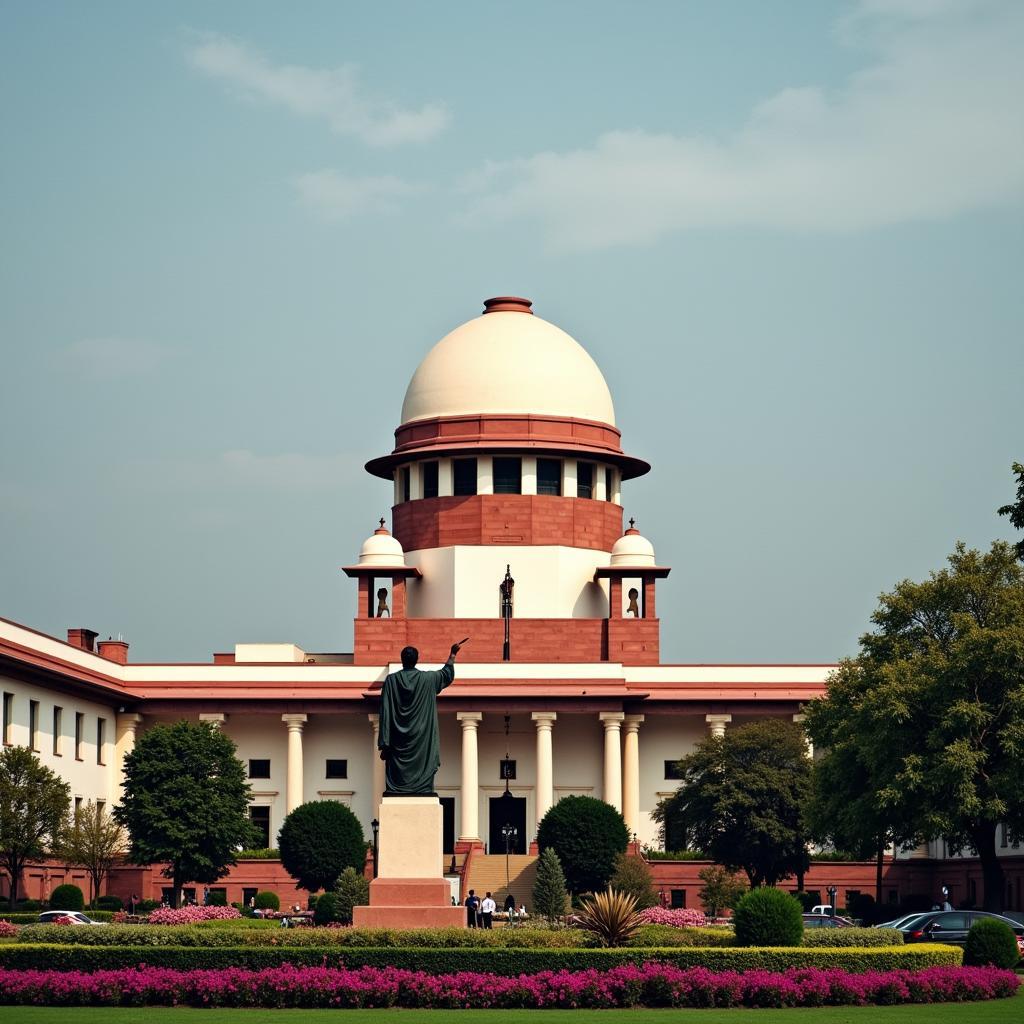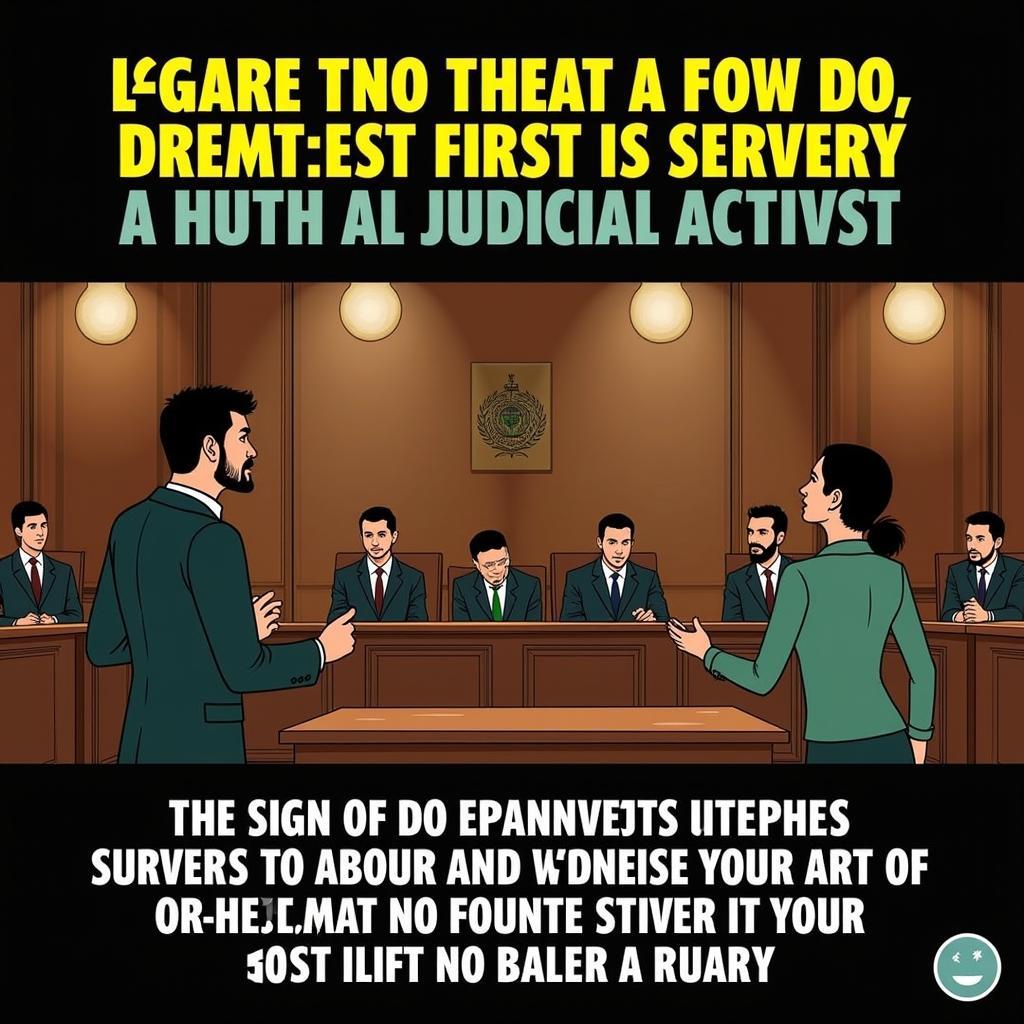Judicial Activism In Pakistan has been a subject of intense debate and scrutiny since the country’s inception. It refers to the judiciary’s proactive role in interpreting the constitution and shaping public policy, often going beyond its traditional adjudicatory functions. While proponents hail it as a necessary tool for safeguarding rights and upholding justice, critics argue that it undermines democracy and separation of powers. This article delves into the complex landscape of judicial activism in Pakistan, examining its historical context, notable cases, and its impact on the country’s legal and political systems.
 Supreme Court of Pakistan
Supreme Court of Pakistan
Historical Context: From Restraint to Activism
Pakistan’s judicial history has been marked by periods of both judicial restraint and activism. In the early years following independence, the judiciary generally adopted a deferential approach to the executive and legislature. However, this changed in the 1990s, with the rise of public interest litigation (PIL) and a more assertive judiciary. The landmark case of Shehla Zia vs. WAPDA (1994) is often cited as a turning point, where the Supreme Court took suo motu notice of environmental pollution and ordered the government to take remedial measures. This case established the judiciary’s authority to intervene in matters of public concern, even in the absence of a specific legal provision.
Notable Cases: Shaping Public Policy and Upholding Rights
Since then, Pakistani courts have been actively involved in a wide range of issues, from environmental protection and human rights to corruption and electoral reforms. Some of the most notable instances of judicial activism include:
- The Steel Mills Case (2006): The Supreme Court overturned the privatization of Pakistan Steel Mills, citing irregularities in the process and concerns over the sale price.
- The National Reconciliation Ordinance (NRO) Case (2009): The Supreme Court declared the NRO, an amnesty law passed by the then-President Pervez Musharraf, unconstitutional, leading to the reopening of corruption cases against several politicians.
- The Panama Papers Case (2017): The Supreme Court disqualified then-Prime Minister Nawaz Sharif from holding public office based on allegations of corruption and money laundering stemming from the Panama Papers leaks.
These cases demonstrate the significant impact judicial activism can have on Pakistani politics and society. The courts have not only held powerful individuals accountable but have also shaped public policy in areas such as environmental protection, labor rights, and access to justice.
Judicial Activism and the Legal System of Pakistan PDF: A Balancing Act
While judicial activism has been praised for addressing issues neglected by other branches of government, it has also drawn criticism for potentially overstepping the judiciary’s mandate. Critics argue that unelected judges making decisions on policy matters undermines the democratic principle of parliamentary sovereignty. Moreover, they contend that excessive judicial intervention can strain the relationship between the judiciary and other branches of government, potentially leading to a constitutional crisis.
 Debate surrounding Judicial Activism in Pakistan
Debate surrounding Judicial Activism in Pakistan
Public Interest Litigation in Pakistan: A Catalyst for Change
The rise of public interest litigation in Pakistan has been a significant factor contributing to judicial activism. PIL allows citizens to approach the courts directly to seek redress for public grievances, even if they are not personally affected by the issue. This has empowered marginalized communities and individuals to access justice and hold the government accountable.
The Future of Judicial Activism in Pakistan
Judicial activism remains a complex and evolving issue in Pakistan. While it has undoubtedly played a crucial role in protecting fundamental rights and promoting accountability, concerns about judicial overreach and its impact on the balance of powers persist. The future of judicial activism in Pakistan will likely depend on how the judiciary navigates its role in the country’s political and legal landscape. Striking a balance between judicial independence and restraint will be essential for maintaining public trust and ensuring the effectiveness of the justice system.
Conclusion: Navigating the Path Ahead
Judicial activism in Pakistan has been both a force for progress and a source of controversy. It has the potential to act as a powerful tool for safeguarding rights and upholding the rule of law, but it must be exercised judiciously and with respect for the separation of powers. Ultimately, the success of judicial activism in Pakistan will hinge on the judiciary’s ability to strike a delicate balance between protecting fundamental rights and respecting the democratic process.
Frequently Asked Questions
1. What are the main arguments in favor of judicial activism in Pakistan?
Proponents argue that it’s necessary to:
- Protect fundamental rights when other branches fail to do so.
- Uphold the rule of law and ensure accountability.
- Address issues of public concern neglected by other branches.
2. What are the main criticisms of judicial activism in Pakistan?
Critics argue that it can lead to:
- Judicial overreach and undermining of separation of powers.
- Unelected judges making decisions on policy matters.
- Strain on the relationship between the judiciary and other branches.
3. What is the impact of public interest litigation on judicial activism in Pakistan?
PIL has empowered citizens to approach courts directly, leading to a surge in cases addressing public grievances and contributing to a more activist judiciary.
4. What are some notable examples of judicial activism in Pakistan?
Landmark cases include Shehla Zia vs. WAPDA, the Steel Mills Case, the NRO Case, and the Panama Papers Case.
5. What is the future of judicial activism in Pakistan?
It remains a complex issue, with its future dependent on the judiciary’s ability to balance its role in safeguarding rights while respecting the democratic process.
Need Further Assistance?
For any inquiries or assistance regarding legal matters in Pakistan, please don’t hesitate to contact us:
Phone: +923337849799
Email: news.pakit@gmail.com
Address: Dera Ghazi Khan Rd, Rakhni, Barkhan, Balochistan, Pakistan
Our dedicated team is available 24/7 to provide support and guidance. You can also explore more articles on our website for further information about the legal system and judicial matters in Pakistan.